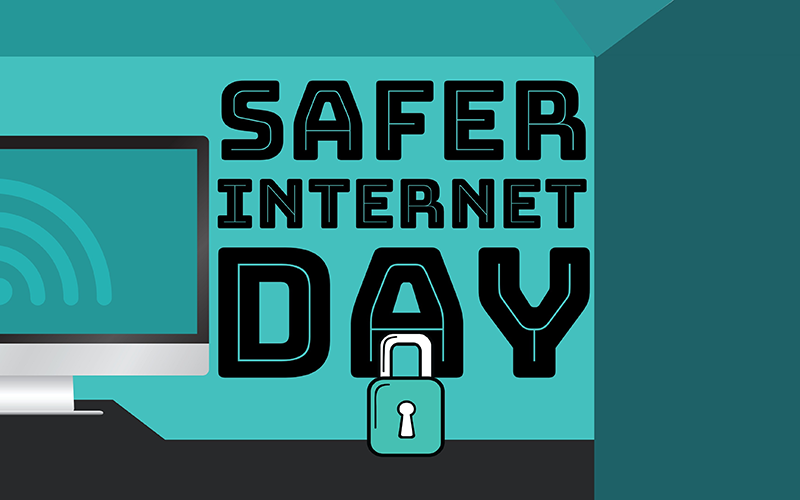Internet safety at university is just as important as any other time in your life. Hopefully it’s been drilled into you from a young age to take the following precautions online, however we understand the importance of reaffirming what you should and shouldn’t do.
The challenge today is that we all increasingly use technology and the internet in our everyday lives. From asking Alexa for the weather, watching Netflix, browsing social media or for just getting you out of bed, technology and the internet is at the centre of our lives.
Safer Internet Day is organised by a joint network of Safer Internet Centres in Europe, with the support of the European Commission. Each February the day promotes the safe and positive use of digital technology, especially among children and young people.
Each year on Safer Internet Day millions of people unite to inspire positive changes online, to raise awareness of online safety issues, and participate in events and activities right across the globe.
For many, making the move to university is often the first chance to be fully independent. You become in charge of your own internet use and online profile, something you might not have considered to be a big thing.
However, the implications of being unsafe online can be huge, particularly on your mental health. It’s important to refresh your memory on the importance of internet safety.
Online dating
The number one rule is to avoid giving out personal information. Anyone can be anybody on the internet, so just be cautious before giving out an address, where you study, your commute etc.
It’s easy to forget that whatever you put on the internet remains forever.
Cyber-blackmail
Experts have warned that cyber-blackmail targeting young people is increasingly rapidly. Data shows that Gen Zers (18-24 year olds) across the UK, US and Canada report higher cybercrime victimisation rates than older generations.
Gen Z has the highest victimisation rates for phishing and cyberbullying and the second-highest rates for identity theft and romance scams after Millennials (anyone born from 1965 to 1980) – according to this report.
The University of Gloucestershire Guide to Online Safety contains 20 tips on the latest cyber-scams and how to stay safe, with a special focus on responding to threats ranging from ransomware and defamation, through to fraud and sextortion.
Getting involved
Everyone has a responsibility to make a difference online. We can all promote the positive by being kind and respectful to others and by seeking out constructive opportunities to create and connect. We can all respond to the negative by reporting inappropriate or illegal content and behaviour online.
Teachers, educators and social workers can help to create a better internet by equipping their pupils and students with digital literacy skills and by developing their critical thinking skills, which will allow them to better navigate the online world. They can empower them to create their own content, make considered choices online, and can set a personal example of positive online behaviour for their pupils and students.
Young people can help to create a better internet by being kind and respectful to others online, by protecting their online reputations (and those of others), and by seeking out positive opportunities to create, engage and share online.
As always, Safer Internet Day aims to create both a safer and a better internet, where everyone is empowered to use technology responsibly, respectfully, critically and creatively.
The campaign aims to reach out to everyone to encourage everyone to play their part in creating a better internet.
By celebrating the positive power of the internet, the Safer Internet Day slogan of “together for a better internet” encourages everyone to join the movement, to participate, and to make the most of the internet’s potential to bring people together.




